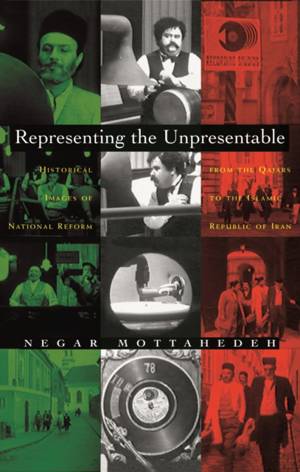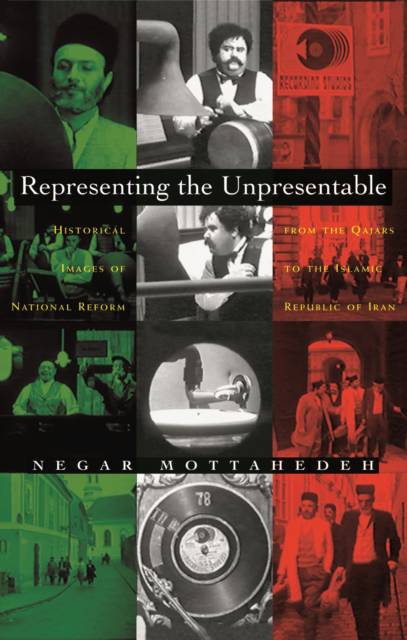
- Afhalen na 1 uur in een winkel met voorraad
- Gratis thuislevering in België vanaf € 30
- Ruim aanbod met 7 miljoen producten
- Afhalen na 1 uur in een winkel met voorraad
- Gratis thuislevering in België vanaf € 30
- Ruim aanbod met 7 miljoen producten
Representing the Unpresentable
Historical Images of National Reform from the Qajars to the Islamic Republic of Iran
Negar MottahedehOmschrijving
In this pioneering book, Negar Mottahedeh explores the central issues of vision and visibility in Iranian culture. She focuses on historical and literary texts to understand the use of visual culture and performance traditions in the production of the contemporary nation. Tracing the historical mediation and dissemination of ideas for national reform in the modern period of Iran, the book examines the various discourses that have constituted the image of the unpresentable "Babi" as the figure of Iran's Other. In her exploration of gender and Iranian cinema, the author powerfully argues that this unpresentable image continues to haunt contemporary Iranian cinema's representations of the nation.
As cinema began to displace other forms of representation in Iran, Islamic culture attempted to keep the motion picture industry free from what it perceived to be the taint of foreign values and intervention. With insight and detail, Mottahedeh looks at the revealing ways in which contemporary Iranian cinema has dealt with representing an unpresentable national modernity articulated through traversals in time and space. These deeply national tropes of traversal shaped the image of the "Babi," against which nineteenth-century Iran produced its own modernity. This highly original work, signaling a paradigmatic shift in Iranian studies and gender studies, will be an invaluable resource for scholars in cultural, Iranian, or film studies.Specificaties
Betrokkenen
- Auteur(s):
- Uitgeverij:
Inhoud
- Aantal bladzijden:
- 278
- Taal:
- Engels
- Reeks:
Eigenschappen
- Productcode (EAN):
- 9780815631798
- Verschijningsdatum:
- 26/02/2008
- Uitvoering:
- Hardcover
- Formaat:
- Genaaid
- Afmetingen:
- 159 mm x 234 mm
- Gewicht:
- 535 g

Alleen bij Standaard Boekhandel
Beoordelingen
We publiceren alleen reviews die voldoen aan de voorwaarden voor reviews. Bekijk onze voorwaarden voor reviews.








